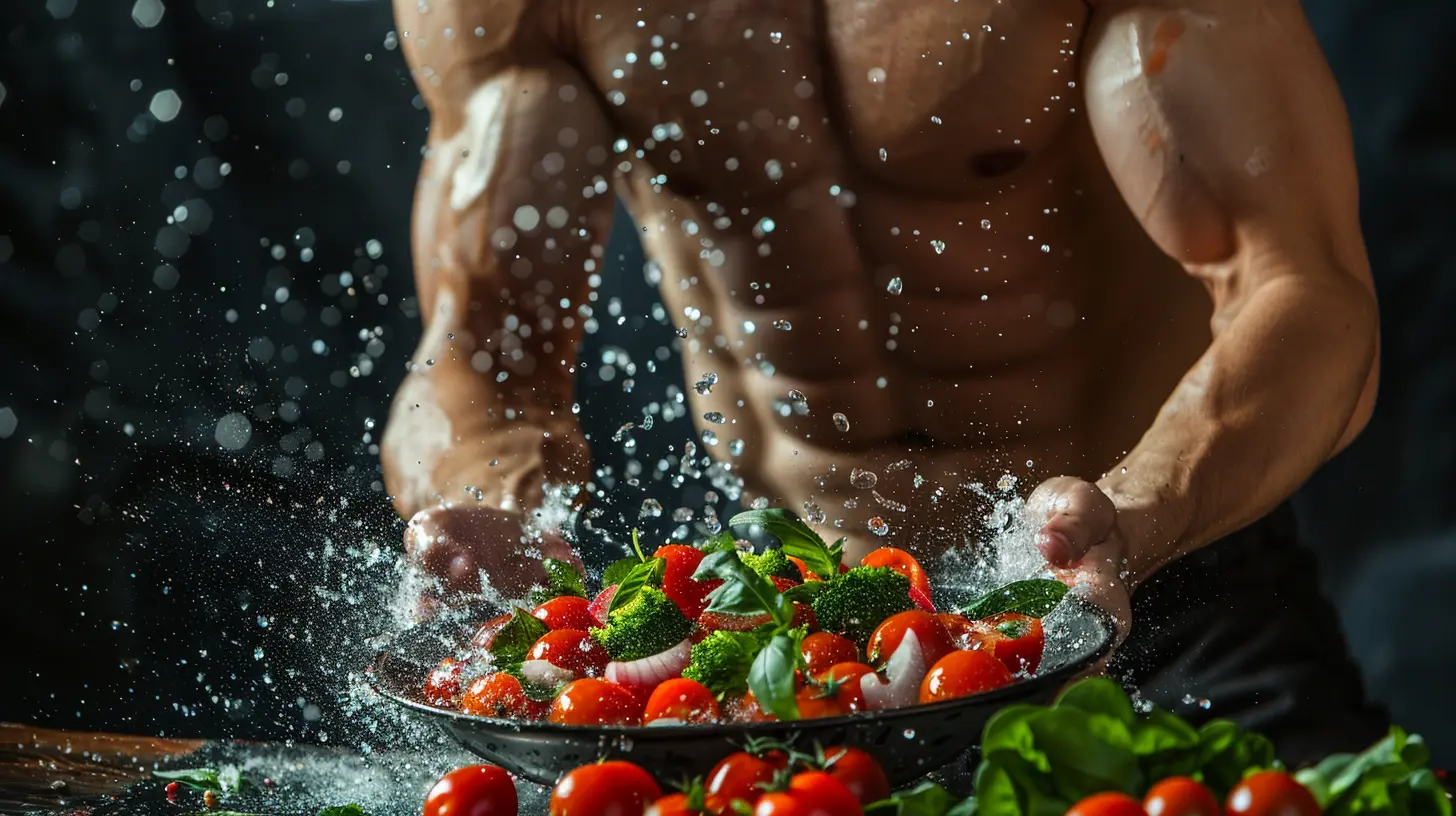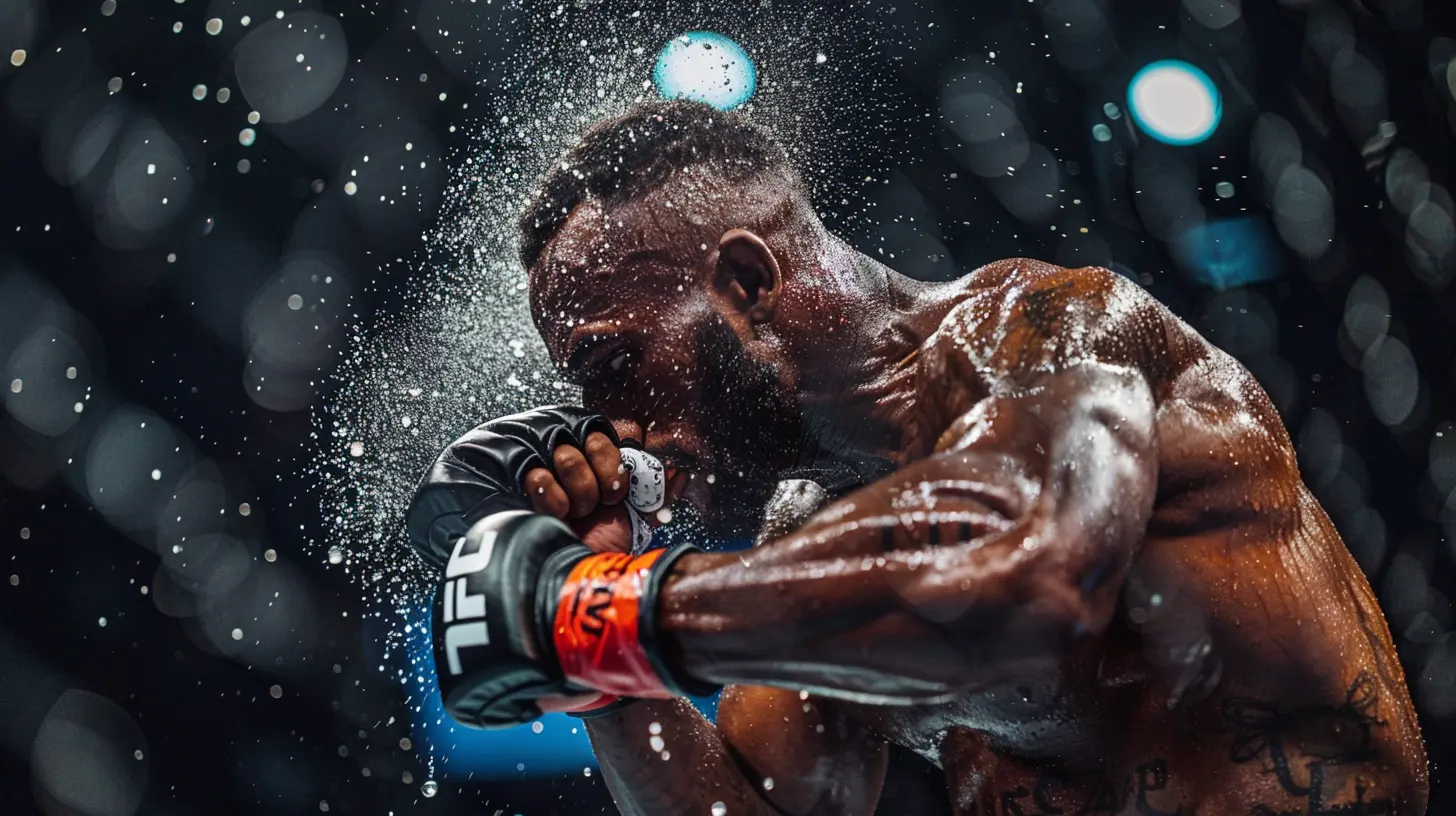The Role of Nutrition in an MMA Fighter’s Success
10 August 2025
When we think about an MMA fighter's success, our minds usually race to highlight reels—brutal knockouts, slick submissions, and blood-pumping title fights. But what most fans don’t see is what happens long before the cage door closes. Behind the scenes, one of the biggest game-changers in a fighter’s performance happens at the dinner table. Welcome to the world of fight fuel, otherwise known as nutrition.

Why Nutrition is a Game-Changer in MMA
Let’s be real—mixed martial arts is no Sunday stroll. It’s one of the most demanding sports on the planet. You’ve got striking, grappling, cardio, strength, endurance, mental focus... the list goes on.So, how does an MMA fighter keep their engine running smoothly? That’s right—a dialed-in nutrition plan.
Think of the body as a high-performance sports car. Without the right fuel, even the best engine sputters. And for a fighter, poor nutrition doesn’t just mean sluggish workouts—it could mean getting outpaced, outpowered, and outsmarted in the cage.

The Demands of an MMA Fighter’s Body
Before diving into what fighters should eat, let’s talk about what they’re up against physically.MMA training is intense. Most fighters train 2-3 times per day in different disciplines—striking, grappling, cardio, and strength and conditioning. That’s a massive energy demand, not to mention the brutal toll it takes on muscles, joints, and even mental stamina.
Without the right nutrients, the body can’t recover, perform, or grow. And guess what? A tired, under-fueled fighter is a vulnerable fighter.

Macros Matter: Breaking Down the Essentials
Let’s start with the big dogs of nutrition—macronutrients.1. Carbohydrates: The Fighter's Octane
Carbs have gotten a bad rap lately, but for fighters, they’re pure gold. Carbohydrates are the body’s main fuel source, especially for high-intensity efforts like sparring and sprinting. When a fighter cuts carbs too low, energy drops, recovery slows, and mental sharpness fades.Think of carbs like high-octane gas—without them, performance tanks. Sources like brown rice, oats, fruits, and sweet potatoes are staples in any solid fight camp meal plan.
2. Protein: Building the Battle Armor
Protein is all about repair and recovery. After a tough training session, a fighter’s muscles are broken down and crying out for repair. Protein swoops in to save the day, helping rebuild stronger, leaner muscles.Top sources? Lean meats like chicken and turkey, eggs, Greek yogurt, fish, and even plant-based options like lentils and tofu. Timing matters too—getting in protein within 30 minutes post-training is a golden rule.
3. Fats: The Recovery Superhero
Fats often get ignored, but they’re essential, especially when it comes to hormone production and joint health. Fats help keep inflammation down and provide long-lasting energy, especially during long, grueling sessions.Healthy fats like avocados, nuts, seeds, olive oil, and fatty fish are a must for staying in the game without burning out.

Micronutrients: Small But Mighty
While macros get the spotlight, micronutrients are the unsung heroes. Vitamins and minerals support everything from immune function to muscle contractions to oxygen transport.Calcium, magnesium, iron, vitamin D, and B-complex vitamins are particularly important for fighters. Skimp on these, and you open the door to fatigue, cramping, injuries, and illness—none of which help you win fights.
Hydration: The Hidden Key to Performance
Want to know the fastest way to cripple an athlete? Dehydrate them.Water affects nearly every bodily function. Just a 2% drop in hydration can cause noticeable performance issues—slower reaction time, brain fog, and decreased endurance.
For MMA fighters who sweat buckets during tough sessions, staying hydrated is non-negotiable. This means drinking consistently throughout the day, not just chugging water during workouts. Electrolytes—think sodium, potassium, and magnesium—are the secret sauce to avoiding cramps and maintaining that spark.
The Ugly Side: Weight Cuts and Nutrition
Now let’s talk about something every MMA fan—and fighter—is familiar with: weight cuts. They’re brutal, controversial, and sometimes downright dangerous.Fighters typically drop massive amounts of weight in the days leading up to a fight to qualify for a lower weight class. The problem? This often involves dehydrating the body and drastically cutting calories, leaving the fighter depleted and weak come fight night.
Smart nutrition helps fighters cut weight the right way. It’s all about timing, food selection, and strategies that preserve muscle mass and energy while shedding fat. Working with a knowledgeable nutritionist or dietician can be the difference between a safe cut and a disaster on the scale.
Meal Timing: It's Not Just What You Eat—It's When
Ever heard the phrase "timing is everything"? It seriously applies to nutrition.Eating the right foods at the right times can skyrocket performance. For MMA fighters, that means:
- Pre-training meals: These fuel the session and should focus on easily digestible carbs with a bit of protein.
- Post-training meals: These support recovery and muscle repair — think protein plus carbohydrates.
- Snacks between sessions: Keeps energy levels up and prevents crashes.
Spacing meals every 3 to 4 hours also helps maintain muscle mass and consistent energy levels—key factors for surviving fight camp.
Supplements: Useful or Just Hype?
Supplements can be helpful, but they’re just that—supplements. They’re not magic pills, and they’re certainly not replacements for real food.That said, there are a few that can give fighters an edge:
- Whey protein: Perfect for quick recovery after training.
- Creatine: Supports strength, power, and recovery.
- BCAAs: Help reduce muscle breakdown and soreness.
- Multivitamins: Fill any nutritional gaps.
- Electrolytes: Crucial during weight cuts and long training sessions.
But here’s the catch—quality matters. Fighters should always use third-party tested supplements to avoid banned substances and stay compliant with anti-doping regulations.
Mental Sharpness Starts on Your Plate
Fighting isn’t just a physical chess match—it’s mental warfare. Focus, reaction time, decision-making—all rely on a well-fed brain.Nutrient-rich foods support brain health and mental clarity. Omega-3 fatty acids (from fatty fish, walnuts, chia seeds) are known to boost brain function and reduce stress. And carbs? Yeah, they actually support serotonin production, which influences mood and mental performance.
Sleep also ties into this—getting enough rest is hard without proper nutrition, and poor sleep impacts everything from strength to strategy.
Real-Life Examples: Nutrition Wins Fights
Want proof? Just look at fighters like Georges St-Pierre, Israel Adesanya, or Valentina Shevchenko. Their coaches and nutrition teams ensure they're at peak performance when it counts the most. These top athletes don’t wing it—they fuel with intention and it shows on fight night.On the flip side, some fighters crash and burn due to poor weight cuts or bad eating habits. That’s not just unlucky—it’s often a sign of nutritional neglect.
Getting Personal: Tailoring Nutrition to the Fighter
There’s no one-size-fits-all approach here. Every fighter is different. Some need more carbs, others thrive on higher fats. Some have allergies or specific dietary restrictions.That’s why working with nutrition experts—dietitians who understand combat sports—is crucial. They can tweak the plan based on body type, training volume, weight class, and even fight strategy.
Nutrition for Recovery: The Real Secret Sauce
Recovery isn’t just about ice baths and massages—it starts with what you eat. After every tough session, your body needs the right mix of nutrients to repair and rebuild.Fighters who underestimate recovery nutrition pay the price in the long run. We're talking injuries, chronic fatigue, and plateaued performance. So don’t just train hard—recover smarter.
The Long Game: Nutrition Beyond Fight Camp
Lastly, let's not forget that fighting careers are short, but health lasts a lifetime. Good nutrition helps fighters not only perform in the cage but also transition into life after fighting.Your joints, brain, heart—these all depend on decades of quality nutrition. So it’s not just about winning fights; it’s about staying healthy and strong for years to come.
Final Thoughts: Food is Fuel, Not a Fix
Here’s the bottom line—nutrition isn’t optional. It’s the foundation of every punch thrown, every round won, and every comeback made.You don’t have to be a pro fighter to take your nutrition seriously. Whether you’re an aspiring amateur or just training for fun, what you put into your body shapes how you perform.
So the next time you lace up your gloves, ask yourself: “Am I fueling to win—or just fueling to survive?”
Trust me, the difference shows when the cage door closes.
all images in this post were generated using AI tools
Category:
MmaAuthor:

Everett Davis
Discussion
rate this article
1 comments
Alanna Palmer
Great article! Nutrition is often overlooked, but it's crucial for an MMA fighter’s performance and recovery. Thanks for highlighting this!
August 26, 2025 at 12:48 PM

Everett Davis
Thank you for your feedback! I'm glad you found the article helpful. Nutrition truly is vital for an MMA fighter's success.


